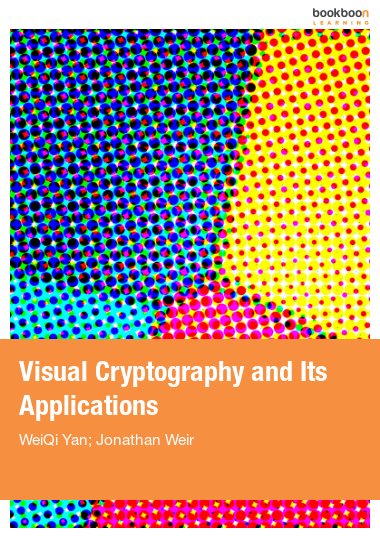As technology progresses and as more and more personal data is digitized, there is even more of an emphasis required on data security today than there has ever been. Protecting this data in a safe and secure way which does not impede the access of an authorized authority is an immensely difficult and very interesting problem. Many attempts have been made to solve this problem within the cryptographic community.
In this book, one of these data security methods known as visual cryptography (VC) is presented. Specifically, visual cryptography allows effective and efficient secret sharing between a number of trusted parties. As with many cryptographic schemes, trust is the most difficult part. Visual cryptography provides a very powerful technique by which one secret can be distributed into two or more shares. When the shares are xeroxed onto transparencies and then superimposed exactly together, the original secret can be discovered without computer participation.
Many types of visual cryptography are examined. From the very first type of traditional visual cryptography right up to the latest developments. Traditional VC specifically deals with sharing a single binary secret between a number of participants. Extended VC attempts to take this a step further by introducing shares that have significant visual meaning. This detracts from the suspicious looking encrypted shares that are generated using traditional methods. Dynamic, colour, progressive and image hatching VC schemes are also discussed.
Practical VC applications are also outlined. These applications involve the use of Moire patterns and watermarking techniques. Detailed analysis of the watermarking domain is presented along with various techniques and schemes that can incorporate VC successfully within the field of watermarking. The foundations of these techniques are reviewed and examples provided.

